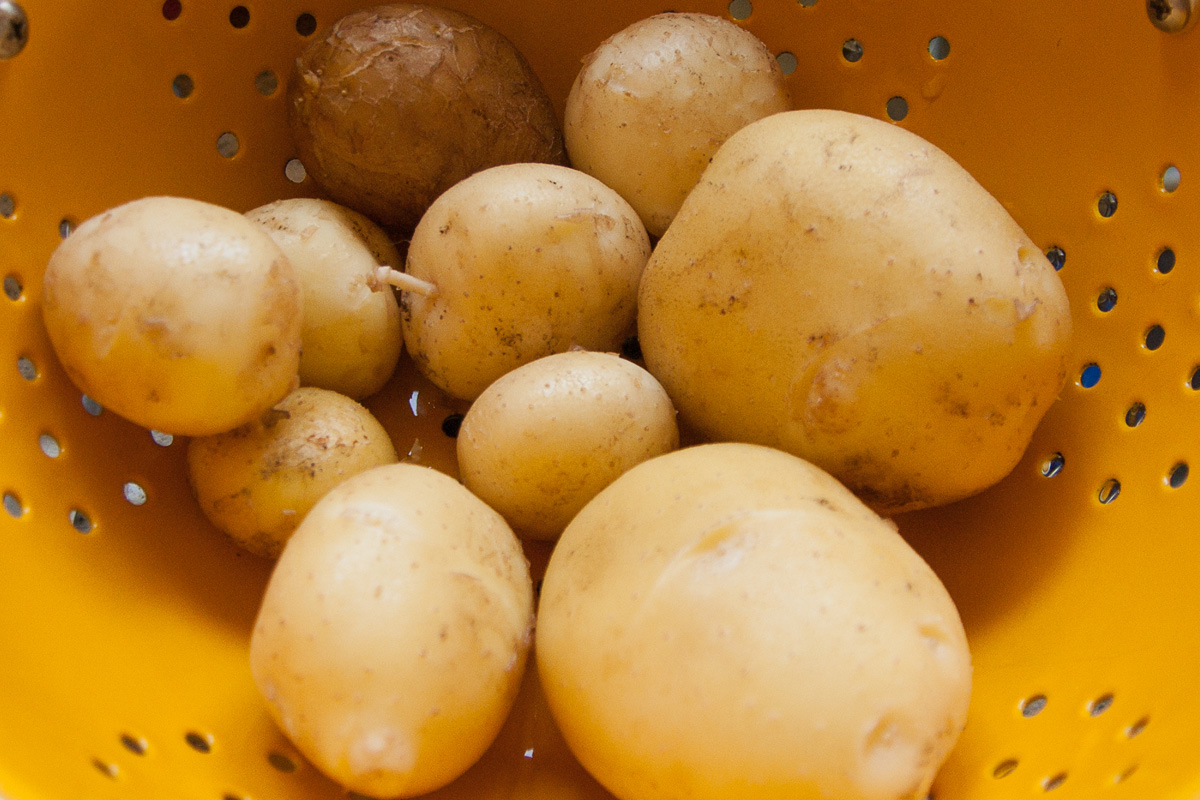In his humorous memoir,
The $64 Tomato, William Alexander devotes an entire book to the existential question every home gardener has to face: is the cost of my gardening worth it, in the end? Cost here is not just money (though that is a significant part), but also the time, the battles against plant pests & diseases, weeds, watering, and space in your yard. If you do add it all up, the gear, water, plants & seeds, and your own time may come up to a BIG number–way larger than the cost of farmer’s market heirloom tomatoes. So, does that mean growing your own food isn’t worth it?
I’ve often wrestled with these doubts, usually when I’m considering a new purchase for the garden and feel like I can’t justify it. A hundred dollars for drip irrigation? But what if I don’t even get $100 worth of food out of my garden in a year?
To truly compare the cost with the benefits of gardening, you need to look at all of the benefits you receive–not just the harvest. There’s so much more that you get from growing your own food than that tomato.
Benefits for You
A True Break from the Digital Realm
Do you work on a computer all day? I do, and I know it can leave me feeling flat and listless by the end of the week. Time in the garden gives me the tactile experiences I don’t get from a computer screen. The textures of earth and plants and fruit, the warm sun, cold dew: it’s a refreshing respite. I never bring my phone with me into the garden, making it a space safe from phone calls, texts, and reminders. Just me and the Green.
Real-life Challenges
Living in our digital world can give us a crooked view of obstacles we must overcome. Most issues in our modern world can be defeated by the simple application of more money. Gardening is more unforgiving: there are times you can’t just throw money at an issue. Slugs can eat all your seedlings, and you’re just out of luck. No rewind, no undo button. The consequences may be small (no broccoli this summer!), but are devastating nonetheless. These lessons about the finality of life can be grounding and help you put life into perspective.
More Veggie Variety
When you grow your own vegetables, you don’t have to choose between just the globe-shaped red tomato and the ovoid-shaped red tomato. You have yellow, green, orange, purple, and black tomatoes of all kinds to choose from. Striped, speckled, and with many flavor profiles and best uses to decide amongst. And that’s just tomatoes! Best of all, you can grow those cool veggies that cost more at the store, like borlotti beans and romanesco broccoli, if you really love them, and you probably
will save some money.
Exercise
We’re not exactly running a marathon in the garden, true, but if you’ve ever spent a few hours moving compost or digging out Fennel roots, you know that gardening can be physically demanding. If you’re mainly sedentary otherwise, tending your plants can be a source of heartbeat-raising activity.
Beauty
Aren’t flowers just
so pretty? 😃
Benefits for Everyone
Using less fossil fuels
Veggies from your garden don’t have to be processed (using electrically-powered conveyor belts, by employees that drove to work), packaged (using plastic made from oil), or shipped (using diesel-powered trucks) to a store near you.
Enriching your local environment
Tending your garden well means more blooms for bees and hummingbirds, and more active soil for bugs and microbes. Those bugs can be food for spiders, birds, and some mammals like raccoons and skunks. Not to mention all that extra oxygen plants produce for us humans!
Letting kids get dirty
If you have little kids, it can seem impossible to find an activity that they enjoy that doesn’t bore you half to death. Gardening can bridge that gap, by combining shovels and dirt, two of a kid’s favorite things, with growing food and being outside. Young kids can mostly play alongside you in the garden, and, as they get older, can have more of a say in what to plant, and maybe even a small garden plot of their own. Kids also love eating fresh from the garden, like shelling sweet peas or hunting for sweet strawberries among the leaves.
Sharing the bounty
With the exception of zucchini, your neighbors will love to “help” take on the excess when you grow too much to consume in your own house. A basket of fresh tomatoes on a doorstep, or ears of just-picked corn left in the office break room, are a fantastic way to garner goodwill with neighbors and coworkers. If you’re shy (like me) it’s also a good way to get conversations started. “Oh, you grew these? What else do you grow?”
You’ll be ready for the apocalypse
Well, no one is truly ready for the end of the world, but if modern civilization were to fall tomorrow, your garden know-how could help you, your family, and possibly your whole town survive the aftermath. The skills that will be most useful if the internet and Safeway are gone? Knowledge of growing/farming, seed saving and storing, and storage techniques for food like canning, dehydrating, and keeping storable foods like potatoes, onions, and pumpkins for long periods of time. Those buckets of freeze-dried Beef Bourguignon may keep everyone alive, but you’ll be the hero when you have fresh fruits and vegetables to share.

